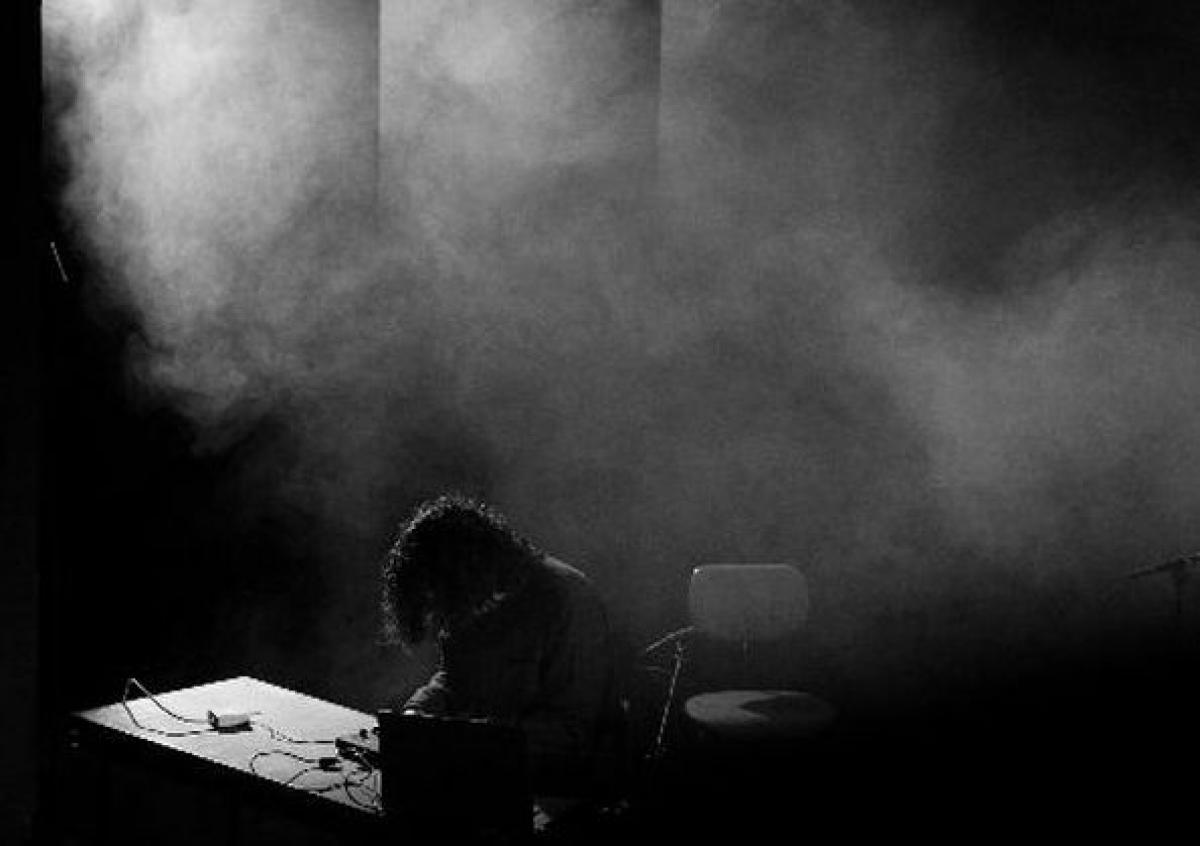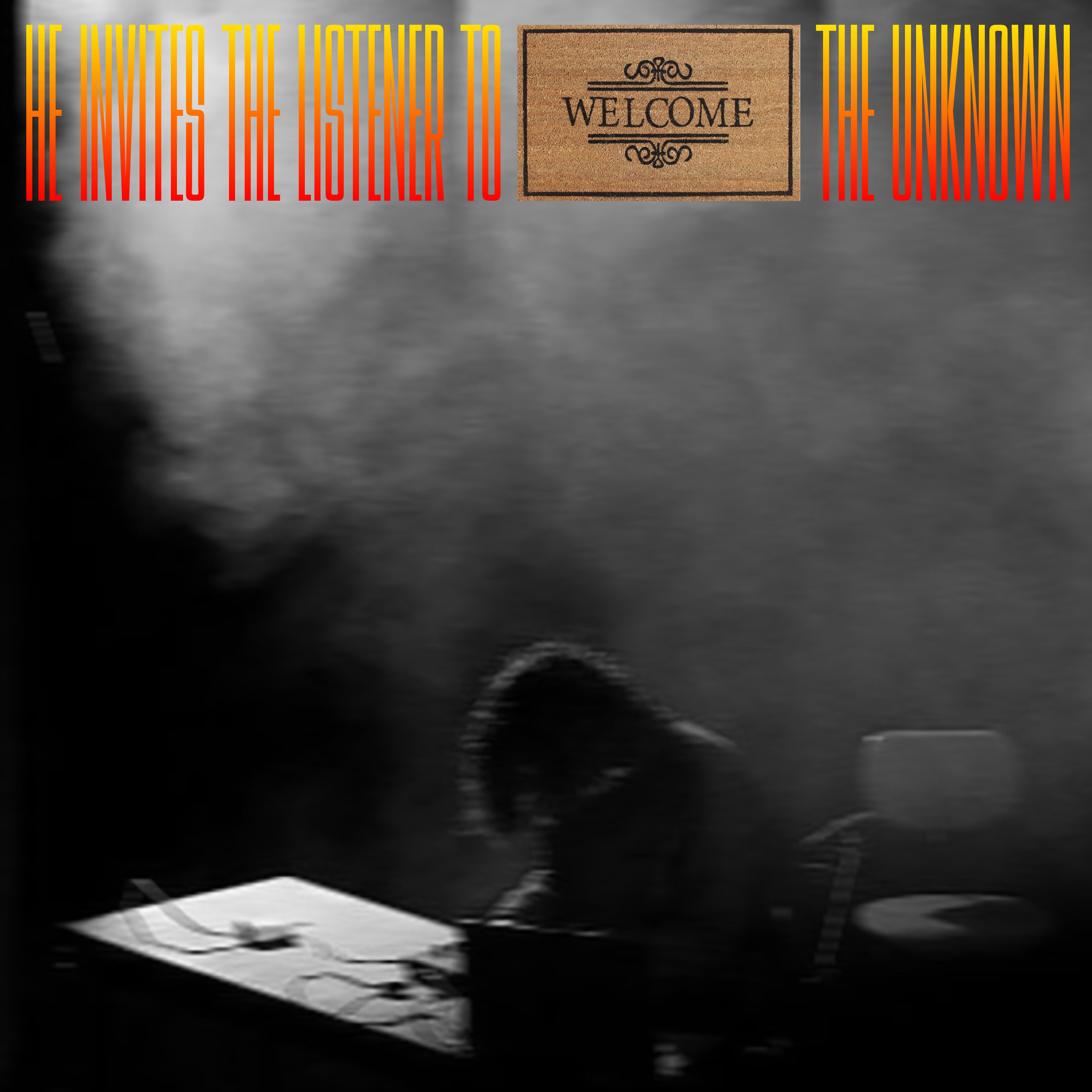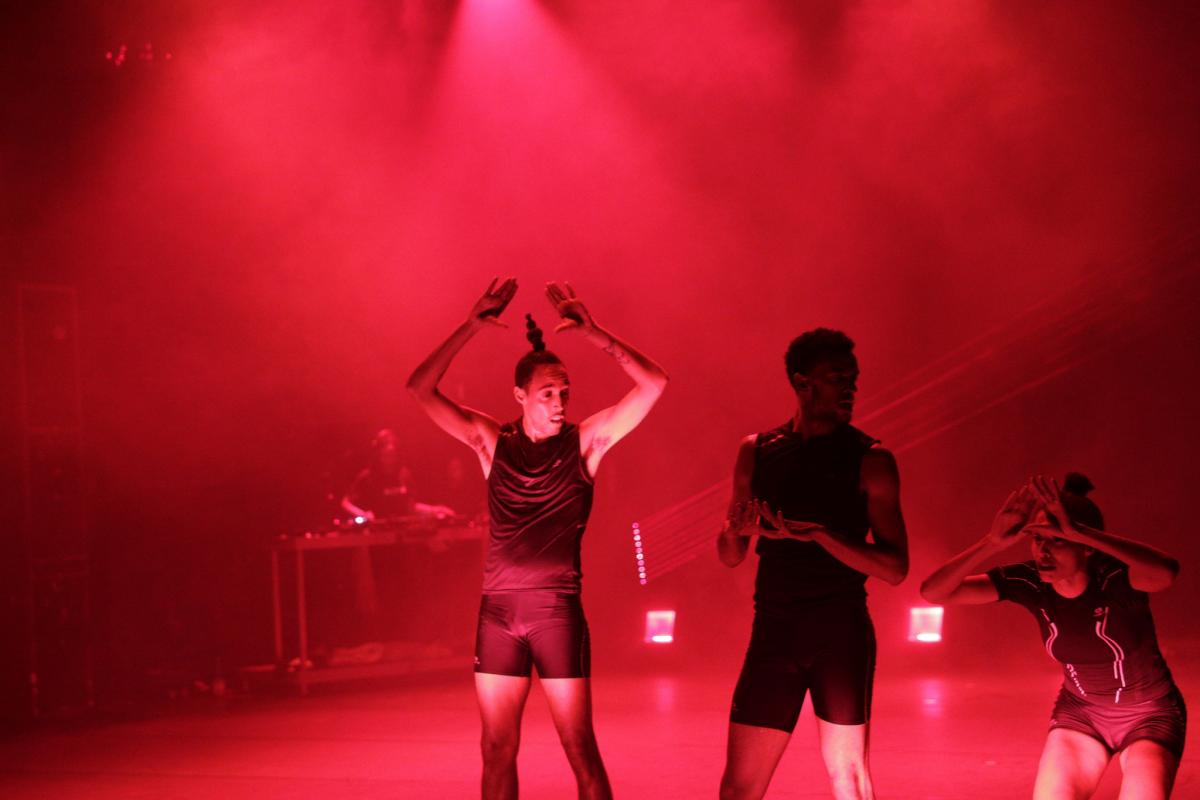The human body is a drilled animal. The meta-national art and music collective NON Worldwide opposes this. Their performance «The Great Disappointment» at CTM Festival aimed at decolononizing the dancefloor by creating sensual disorientation.
Three dancers run to the centre of a pitch black stage. Like nervous robots, they move their bodies asynchronously, as the breakbeat cuts through dissonant textures and heavy bass. The music is played by one of the two DJs standing opposite to each other at the corners of the stage. A noisy sound gets louder and louder, the dancers leave the stage, and thick smokes fills up the space. As the smoke gradually dances through the air, alone with the overwhelming frequencies, it conjures up feelings of overstimulation, disorientation and subtle euphoria.
These aggregate states of the human condition were probably exactly what the international music collective and label NON Worldwide was aiming for. The premiere of their performance «The Great Disappointment» at HAU2 at Berlin's Club Transmediale Festival 2017 was in perfect accordance with its motto: «Fear, anger and love» – and it was one of the highlights of this year's edition, although it posed more questions than it answered. Or maybe it posed more than it answered – given the fact that the primary experience of art should be more than the absence of the familiar rather than the presence of the new, a blank canvas of yet to be defined desires and dreams.
Re-Politicisation of the Postcolonial
NON was founded by the musicians Nkisi from London, Angel-Ho from Cape Town and the Virginia based Chino Amobi, all members of the African Diaspora. Their most urgent aim is the (re-) politicisation of the postcolonial, but also marginalised and queer bodies. By drawing attention to the «visible and invisible structures that create binaries in society, and in turn distribute power» the collective is looking to disrupt hegemonic mainstream culture ruled by the white middle class.
Instead of claiming concrete political ideas, NON counts on more abstract and more embodied ways of criticism, relying on the fact that the human body is a drilled animal. The same counts for the human mind. Our ideas about the world and society, our opinions, our cultural tastes are all the result of a cocktail of indoctrination: education from schools and the family, oral histories, traditions, pop culture, movies, and not to forget our personal everyday experiences like the random encounters with people on the street, in the super market, at a concert or, to finish in NON's realm, the club
How to Act and Be Different
Clubs as lived arenas of pop culture have always been a laboratory of alternative ways of being. After disco and house in the late 80s and techno in the 90s, it's the recent, more hybrid styles of labels such as PAN, the queer imprint Janus or NON that are ahead of «teaching» their crowds how to be, how to act and how to live differently. Listening and dancing to their music offers vague ways of belonging through intimacy and anonymity as well as the shared affects produced by collective catharsis and emotional contagion.
Of course, one could claim, these examples are universal, and could also apply to many other gatherings of like-minded people, be it a soccer game or even a right-wing party congress. But what matters here is the fact that these would be mostly based on the notion of sameness – a mode that is still embedded in the Christian notion of «love one's own». Club parties, like those of the aforementioned labels, for example, rely on the opposite. Rather than sameness it's difference that keeps them alive.
It's this dissimilarity that makes it possible to create an intimate togetherness while being and acting differently, just like how most of their music sounds: dozens of different elements, such as melodies with ever changing pitches, different overlapping rhythms that create disorienting polymetrums and restless basslines, with quickly changing timbres, all clash against one another, yet in perfect harmony (strongly represented in Lotic's track «Carried» or Angel Ho's «You'll Never Find»).
Against Petrification
By offering this, clubs could be understood in terms of what the British cultural theorist Paul Gilroy calls an «alternative public sphere». A term he uses to describe how social or ethnic minorities create a distinctive cultural and social identity among a more homogenous mainstream society. In these terms NON and others are reaching out for new urban, queer, subcultural identities and immigrants living outside their country of origin. This variety is inscribed in their music as well from the pretty dark and bleak noise and Gqom hybrids of South African producer Faka, to the polyrhythmic breakbeat meditations of Chino Amobi.
NON's «The Great Disappointment», a radical pastiche of opera, pop concert, dance performance and drag show, is able to show – by its overwhelming energy and the crowd's raised eyebrows – how it feels to get thrown in (and affirm) ambivalent states of being such as disorientation, (loose) belonging, free expression and a sound-driven, subtle vertigo. It reminds us that clubs – as a metaphor of entire societies – can be utopic grounds for borderless, transnational, polycentric lifestyles as well as the free flow of sounds and ideas. But most importantly, they dissolve the petrification of identity, nationality and notions of gender.




